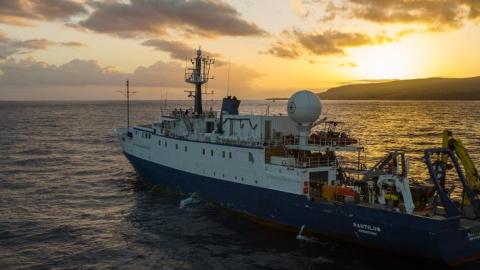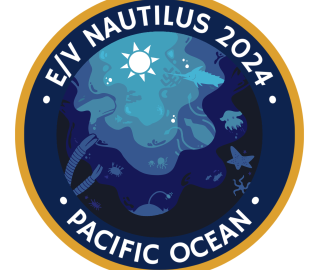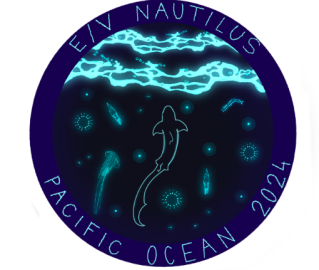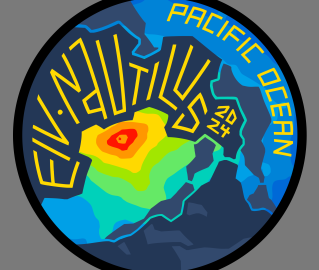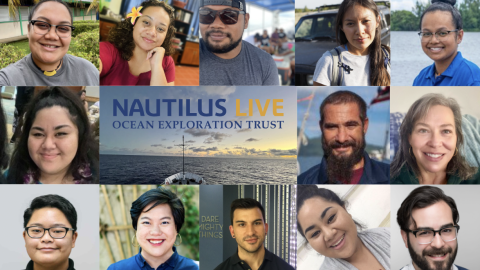Meet Nathan Lannon- OECI Bridge to Ocean Exploration Intern
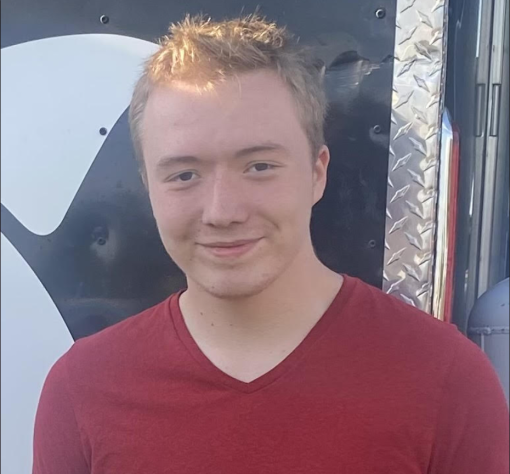
OET proudly welcomes Nathan Lannon as a member of our at-shore team! As an Ocean Exploration Cooperative Institute (OECI) Bridge to Ocean Exploration intern, Nathan works with OET's Education and Outreach and Data team members on the Realtime Underwater Modeling and Immersion (RUMI) project. The Bridge to Ocean Exploration (B2OE) Program, based out of the University of Rhode Island’s Graduate School of Oceanography, is an "experiential learning program key to advancing this mission, offering paid, part-time opportunities in ocean science, data science, and science communication to interested and eligible students." The program places students from community college students with OECI-funded projects on campus in Rhode Island.
We chatted with Nathan to learn more about his experience in computer science the path that led him to ocean exploration.
Describe your role with OET.
I'm a student intern with OECI, working on the RUMI project with OET. My role right now is as a programmer on the simulation project, developing a prototype game in Unreal Engine that replicates real-life dives. My goal with this project is to create a fun, interactive experience that takes people behind the scenes in the cool highlight clips they see online.
Can you tell us a little about your background? What influenced you as a child?
I originally got into computers by playing games. When I was a kid, we had a family computer that my sister and I would take turns using. It was a little slow, so I spent a long time researching how to improve its performance, what all the parts did, and which ones I could upgrade. Later, I got into programming first through modding games. Creating my own mods was a fun challenge, and I always liked showing them off and seeing what people thought. Since starting at CCRI in 2022, I've worked on a couple of different projects, including OECI website updates, ROVIA, URI Dynamic Metrics, FortiFly.Train, and a few personal projects.
When you were a kid, what did you want to be when you grew up?
Since I was a kid, I have known that I would grow up to do something with computers. That's what I always responded with when people asked. For a long time, it was to be a technician, fixing broken computers and putting together new ones. I still enjoy this in my free time, but I couldn't imagine doing it as a job now. Computers can be very finicky, and figuring out why one doesn't work is not fun. I like the field I've found myself in. It provides a good amount of creative freedom; I feel like I'm constantly learning, and I see my ideas come to life on the screen.
What would you consider to be your greatest challenge entering this field?
This field, especially now, is very oversaturated with people trying to enter. The sheer number of people can make it hard to stand out; I've heard plenty of stories from my peers of submitting hundreds of applications and studying daily for internships but still coming up empty-handed. It's a very competitive field, especially in the entry-level positions.
Do you have any advice for someone looking to follow a similar path?
The biggest thing that sets programming and computer science apart from many others is how quickly they evolve. You always need to learn and adapt to keep up. During this project alone, we've researched and tested four different methods to display the world, and three of those four methods only started to gain mainstream attention within the past five years. If this project had begun five years ago, we would've had to go down a different path.
What's next for your ocean studies and career?
I don't know what's next. After this semester at CCRI, I plan to transfer into a Computer Science B.S. program at URI. After that, I guess I will just figure it out as it comes. Through these internships, I have started to gain a greater interest in oceanography, so I might learn more about that. I would also like to try an expedition at sea at some point. I've heard crazy stories about those, and it seems like a rite of passage for getting into oceanography.
